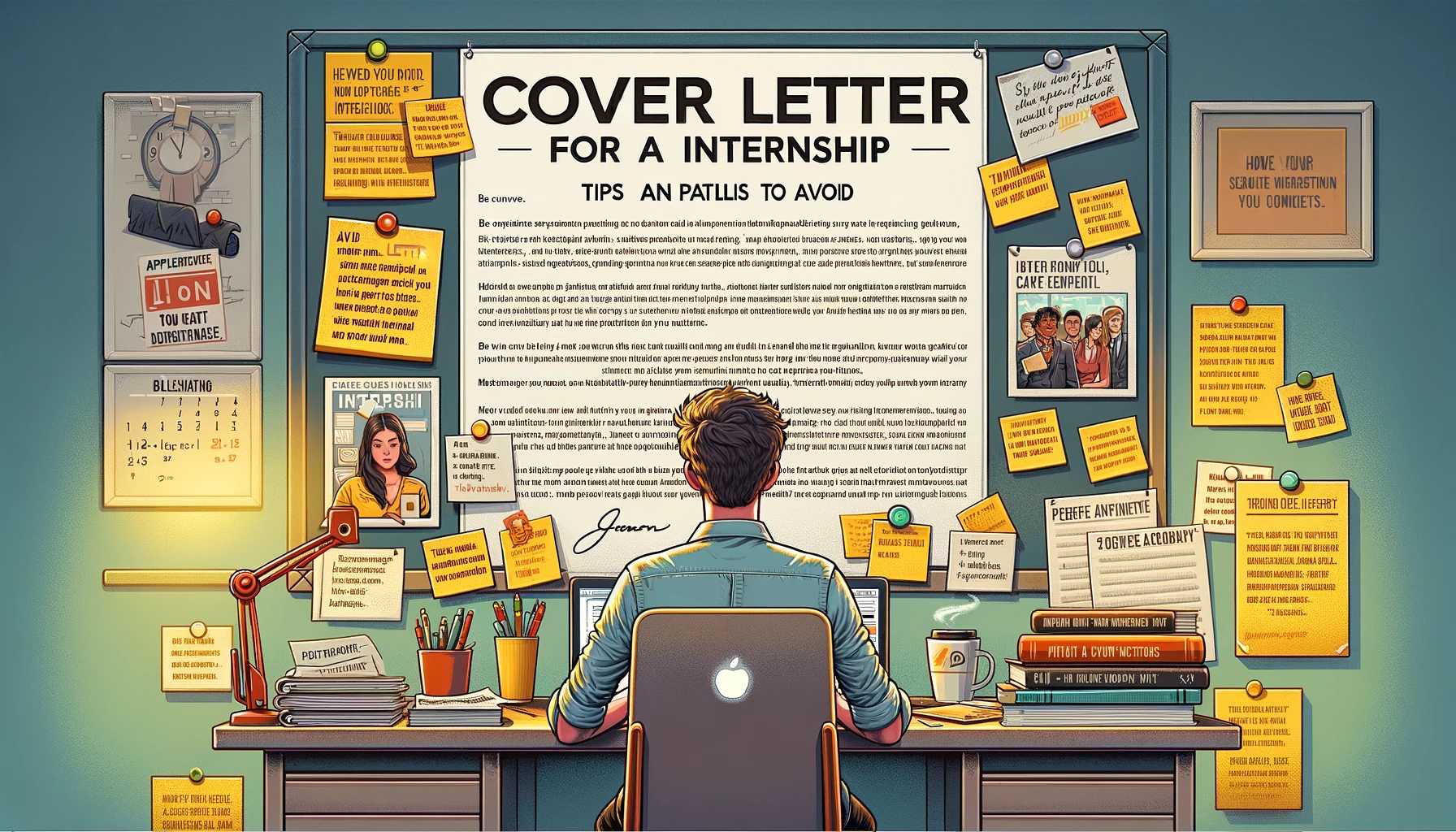Perfect Cover Letter for an Internship: Tips and Pitfalls to Avoid
Securing an internship can be a pivotal step in launching your career and gaining valuable experience in your chosen field. However, with fierce competition for internship positions, it's essential to make a strong impression with your application materials, starting with your cover letter. In this article, we'll explore some essential tips for crafting a compelling cover letter for an internship, as well as common pitfalls to avoid along the way.
1. Tailor Your Cover Letter to the Internship:
One of the most critical steps in creating an effective cover letter for an internship is to tailor it to the specific position and company you're applying to. Take the time to research the organization, its culture, and the internship role itself. Use this information to customize your cover letter and demonstrate your genuine interest in the opportunity. Hiring managers can quickly spot generic, one-size-fits-all cover letters, so make sure yours stands out by showcasing your enthusiasm for the internship and your understanding of the company's mission and values.
Avoidance Tip: Avoid using a generic template that you use for every internship application. Instead, customize each cover letter to highlight why you're a perfect fit for that particular internship.
2. Highlight Relevant Experience and Skills:
While you may not have extensive professional experience as a student or recent graduate, you likely have relevant coursework, projects, extracurricular activities, or part-time jobs that have equipped you with valuable skills and knowledge. Use your cover letter to highlight these experiences and how they've prepared you for the internship. Focus on transferable skills such as communication, teamwork, problem-solving, and adaptability, and provide specific examples to demonstrate your abilities.
Avoidance Tip: Avoid simply listing your experiences or skills without providing context or relevance to the internship role. Instead, explain how each experience has equipped you with the skills and qualities necessary to succeed in the internship.
3. Showcase Your Passion and Enthusiasm:
Employers are often looking for candidates who are not only qualified for the internship but also passionate about the industry and eager to learn and grow. Use your cover letter to convey your enthusiasm for the opportunity and your commitment to making the most of the internship experience. Share what excites you about the industry, the company, and the specific role, and explain why you're eager to contribute and learn from the experience.
Avoidance Tip: Avoid generic statements or clichés about your passion for the field. Instead, provide specific examples or anecdotes that demonstrate your genuine interest and enthusiasm.
4. Keep It Concise and Relevant:
Hiring managers are busy people, and they don't have time to read lengthy cover letters filled with unnecessary details or irrelevant information. Keep your cover letter concise and to the point, focusing on the most relevant experiences, skills, and qualifications that make you a strong candidate for the internship. Aim for no more than one page in length and use clear, concise language to convey your message effectively.
Avoidance Tip: Avoid including irrelevant or extraneous information in your cover letter, such as personal anecdotes or unrelated experiences. Instead, focus on highlighting the most relevant aspects of your background and qualifications.
5. Proofread Carefully for Errors:
Typos, grammatical errors, and other mistakes can undermine the professionalism of your cover letter and create a negative impression with hiring managers. Before submitting your cover letter, take the time to proofread it carefully for errors. Use spelling and grammar checkers, but also consider reading it aloud or asking a trusted friend or mentor to review it for you. Even small errors can make a big difference, so don't overlook this crucial step in the application process.
Avoidance Tip: Avoid relying solely on spell checkers or grammar checkers to catch errors in your cover letter. Instead, take the time to read it carefully and thoroughly, and consider getting a second opinion from someone else.
6. Follow Instructions and Formatting Guidelines:
Finally, make sure to follow any instructions or formatting guidelines provided by the employer in the internship posting. This may include specific instructions for how to submit your application, what information to include in your cover letter, or any additional materials required. Failure to follow these instructions can signal to the employer that you're not detail-oriented or that you lack respect for their hiring process, so make sure to double-check and adhere to all requirements.
Avoidance Tip: Avoid overlooking or disregarding any instructions provided by the employer in the internship posting. Take the time to carefully review and follow all instructions to ensure that your application is considered.
In conclusion, crafting a compelling cover letter for an internship requires careful attention to detail, thoughtful customization, and a genuine passion for the opportunity. By tailoring your cover letter to the internship, highlighting relevant experience and skills, showcasing your enthusiasm, keeping it concise and relevant, proofreading carefully for errors, and following instructions and formatting guidelines, you can create a standout cover letter that sets you apart from other candidates and increases your chances of landing the internship of your dreams. With these tips in mind, you'll be well-equipped to navigate the competitive internship market and take the next step forward in your career journey.









